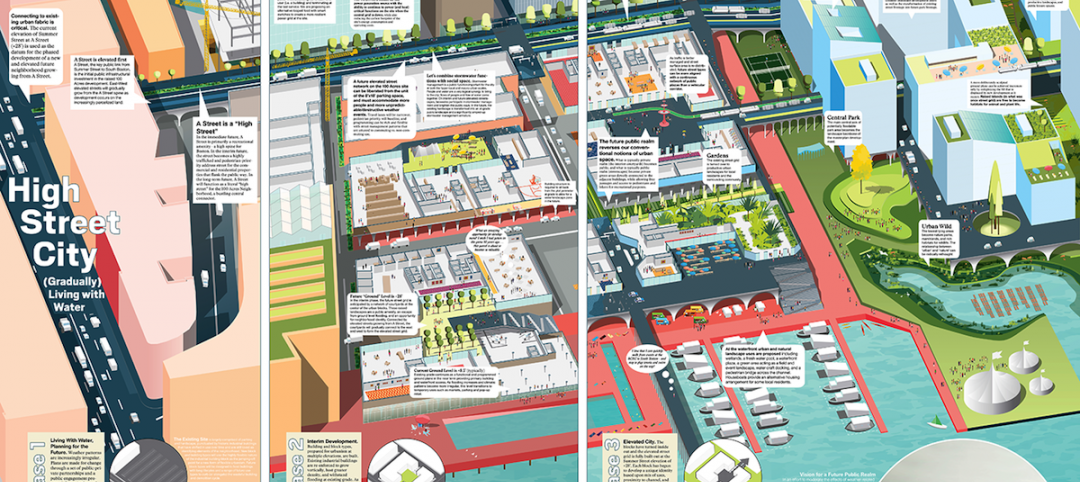You may be violating an employment law just by trying to be nice to your employees, says a new report.
The California Chamber of Commerce has produced a white paper cataloging the top 10 mistakes most likely to get a company sued. While a few of the laws cited apply specifically to California, some of them are federal and may apply in your state.
The report observes: "Employers may unintentionally violate employment laws simply by trying to provide some flexibility for an employee, save money for the company or just be nice."
Here are the top 10 mistakes:
1. Classifying all employees as exempt, whether they are or not
It may be easier to pay someone a salary rather than figure out overtime, meal breaks, rest breaks and the like. The time (and money) you save on bookkeeping is a false economy, however, since you could pay big time in penalties or a lawsuit. (See the report for more specifics.)
2. Letting employees work through lunch so they can take off early
A non-exempt employee is required to be given a 30-minute meal break, plus a 10-minute break for every four hours worked. If you deny one or the other, you owe the person an extra hour's wages; if you deny both in the same day, you owe an additional two hours. The wages must be paid during the pay period in which it's missed. The employee cannot waive his or her right to the breaks.
3. Making everyone an "independent contractor" because having employees is too much trouble
The report notes that contractors are happy until one of the following comes up: workers' compensation, unemployment insurance, state disability insurance or paid family leave benefits. Avoid these legal spiderwebs by determining who is and who isn't a contractor.
4. Not providing training about harassment and discrimination to managers and supervisors
Don't assume your employees won't need the information. Avoid lawsuits by providing the basic sexual harassment training required by law.
5. Letting employees decide which, and how many, hours they want to work each day
Most employees are restricted by law regarding the number of hours they can work without needing to be paid overtime. If you are allowing longer workdays for four-day workweeks, there are rules that need to be followed. Check with your state laws for specifics.
6. Terminating any employee who takes a leave of absence
From the report: "Employees have legal protection when they are away from work for various reasons, including workers' compensation, disability, pregnancy, family and medical leave, military leave, jury duty and many more."
7. Withholding an employee's final check if they fail to return company property
You may think you can withhold money while you wait for an employee to return a computer or a cellphone, but think again. Some states have laws that require you hand over the check the minute the words "you're fired" come out of your mouth. And if an employee quits and gives more than 72 hours notice, the check must be ready on his or her last day. The penalties start accruing from the moment the check is late-one day of wages for every calendar day of delay.
8. Providing loans to employees and deducting the money from their paycheck each pay period
This seems perfectly fine, doesn't it? Except most state labor codes permit only paycheck deductions authorized by law and those authorized by the employee for health insurance or other benefits. No other deductions are permitted. If you're making a loan, you should have the employee sign a promissory note and a lawyer review it.
9. Using noncompete agreements to protect confidential information
Many employers force employees to sign these agreements to protect business secrets, customer lists, and pricing information and to prevent employees from working for the competition. Essentially, you can't force your employee to stay with you, nor can you prevent him or her from making a living.
10. Implementing a "use it or lose it" vacation policy and avoid paying out all the money at termination
Accrued vacation is a form of wages and cannot be denied. You can stop an employee from accruing vacation beyond a "reasonable" amount, but you cannot take away what he or she has already earned. What is considered a "reasonable" cap? Generally 1.5 to two times the annual accrual, says the report.
Have you suffered any consequences from doing any of these things?
--
Courtney Rubin is a business writer and contributing editor to Inc. magazine.
Related Stories
Architects | Mar 18, 2015
Architecture Billings Index rises in February
The ABI score was 50.4 last month, up slightly from a mark of 49.9 in January. This score reflects a minor increase in design services, according to AIA.
Multifamily Housing | Mar 18, 2015
Prefabricated skycubes proposed with 'elastic' living apartments inside
The interiors for each unit are designed using an elastic living concept, where different spaces are created by sliding on tracks.
Architects | Mar 18, 2015
Boston selects finalists in resilient design competition
The competition asks for creative approaches for planning for a not-so-distant future Boston where higher sea levels and more frequent flooding will be real and critical issues to contend with.
Cultural Facilities | Mar 17, 2015
The High Line’s co-designer wins contract for The Underline in Miami
James Corner Field Operations will design the master plan for this 10-mile restoration project.
Sponsored | | Mar 17, 2015
Are face-to-face meetings still important?
One CEO looks pass convenience and advocates for old school, in-person meetings.
High-rise Construction | Mar 16, 2015
NBBJ creates 'shadowless' skyscraper concept for proposed UK development
A team of architects from the London branch of NBBJ used computer algorithms to generate a dual-tower design that maximizes sunlight reflections to eliminate the buildings' shadows.
Healthcare Facilities | Mar 16, 2015
Healthcare planning in a post-ACA world: 3 strategies for success
Healthcare providers are seeking direction on how to plan for a value-based world while still very much operating in a volume-based market. CBRE Healthcare's Curtis Skolnick offers helpful strategies.
Resort Design | Mar 16, 2015
Giancarlo Zema Design Group unveils plans for semi-submerged resort in Qatar
The resort will have four semi-submerged hotels that look similar to super-yachts, each including 75 luxury suites with private terraces.
Mixed-Use | Mar 13, 2015
Dubai announces mega waterfront development Aladdin City
Planned on 4,000 acres in the Dubai Creek area, the towers will be covered in gold lattice and connected via air-conditioned bridges.
Contractors | Mar 13, 2015
Construction materials prices rise for first time in six months
The largest monthly gain in petroleum prices in over three years caused construction materials prices to expand 0.4% in February, ending a six-month streak when prices failed to rise, according to the Bureau of Labor Statistics.
















